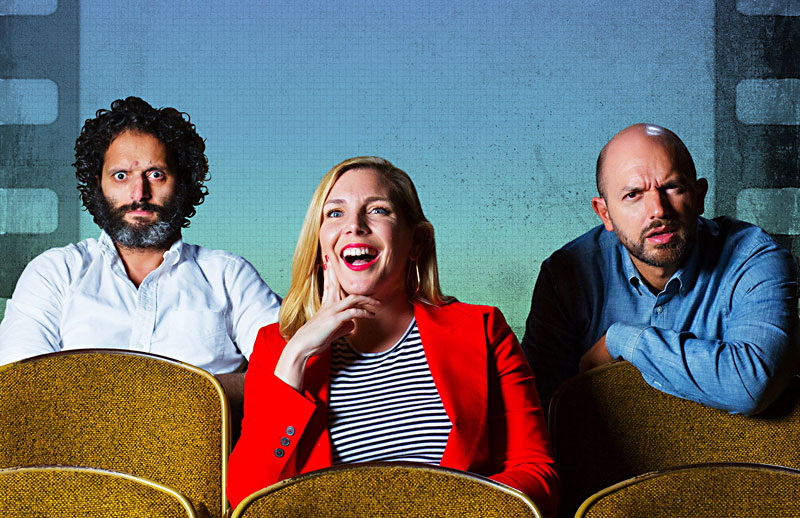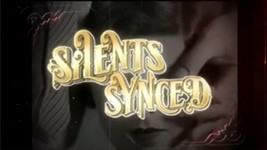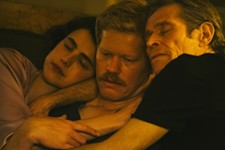How Did How Did This Get Made? Get Made?
Paul Scheer brings his live movie podcast to Austin
By Richard Whittaker, Fri., June 7, 2019
It's hard to be heard above the hubbub of movie podcasts, but semi-satirical How Did This Get Made? wasn't just one of the first in the modern wave of audio cinema criticism – it's also one of the most successful. Host Paul Scheer said, "We got to plant our flag really early, and now we have a rapport."
This weekend, Scheer pulls double duty in Austin. First, on Friday, the comedian and actor teams back up with his old friends from fantasy sports comedy The League for a special 10th anniversary reunion at ATX Television Festival. Then, on Saturday, he sits down with his co-podcasters – fellow League player Jason Mantzoukas and Big Mouth and Long Shot comedy heavyweight (and Scheer's wife) June Diane Raphael – for a special recording of HDTGM. "It's not our main job," said Scheer. "Jason, June, and I, we're all working actors and writers and directors and producers, so it's just this fun place to play on a weekly level." It'll also be a rare afternoon show, "so it'll have a fun, different energy."
The history of HDTGM is part of podcast folklore: Raphael and Scheer staggered out of a screening of Wall Street: Money Never Sleeps (a film that, famously, has so far avoided the HDTGM mauling) and sold Mantzoukas on the idea of a podcast where they would just talk about movies you don't so much watch as bear witness to, and then try to work out what the filmmakers were thinking. Since then, they have taken a sideways glance at the also-rans of cinema: from Madonna's ill-considered Indiana Jones knockoff, Shanghai Surprise, to quality schlock like Anaconda and straight-up baffling missteps like Sean Connery's barbarian mankini fashion statement in Zardoz (a movie so mind-boggling it required the show's only two-parter). After nine years and 214 episodes (plus 212 mini-episodes), Scheer has become a major voice in film podcasting and now also co-hosts a more serious podcast, Unspooled, with Variety's Amy Nicholson, where they explore the American Film Institute's list of the top 100 films. However, even in the ever more crowded realm of film podcasts, he still sees something unique in HDTGM. "There could be five shows – and I'm sure there are five shows – that are exactly like How Did This Get Made?, but people are not tuning in for concepts. They're tuning in for personalities."
Of course, HDTGM couldn't come to Austin without taking aim at the city's biggest movie star and one of his most baffling projects; so this time, it's Matthew McConaughey's jaw-dropping Serenity dissected onscreen – and yes, Scheer said, "Participation is always encouraged." That includes the famous "Second Opinions" song section, where the audience can have their revisionist say. "Some people have come with full instrumentation and done performances," Scheer said, "and we do not look down on people coming in costume for the film."
Austin Chronicle: There are so many movie podcasts now, but when you started How Did This Get Made?, there wasn't really the same ecosystem that there is now.
Paul Scheer: I wish I could say we were really smart, and say that we knew that podcasting was going to be this amazingly revolutionary form of entertainment, but the truth is that I come from an improv background out of the Upright Citizens Brigade theatre, which was all about – and still is to this day – coming up with an idea and doing a show. With improv, you do a show, it's disposable, it goes away, no one ever sees it again. So the idea of just doing something fun – "Oh, it's a podcast, it'll be fun." ... It's the same as I was doing with web shows or Adult Swim. It's, "Oh, this is a cool format, let's play around with it."
We didn't put much thought into it. We just found a format that felt refillable and that we just enjoyed doing, and it just grew. That's one of the things that I love about the podcast: I came from this background of doing my own shows, writing my own shows, producing my own shows, then performing them, getting people to come see [them]. I also love radio – I'm a huge Howard Stern fan – and I did radio back in New York at KROQ. When podcasting came around, I was a fan of podcasts. I wanted to do podcasts. I didn't know it was going to be this giant thing that it is now, where everyone has a podcast. It just seemed like a natural extension of what I was already doing – putting up shows for 75 to 100 people on a Friday night. And it had this element of radio that I love, but you didn't have to be locked into this schedule of 10 to 2 or 6 to 10. You could do it whenever you wanted, and what I was already doing.
AC: And part of it is finding people to be hosts that you can spend a couple of hours in a room with and make something worth listening to. At the same time, you don't want to have so much fun that you suddenly have four and a half hours of show to edit.
PS: I kind of run the ship on How Did This Get Made?, at least in terms of the timing and the clips. You have to sometimes think of the audience, or if we do an exceptionally long episode, go back in and listen to it and make some edits. It's always, "How much of a fun time is it for the people listening versus the people there?"
When we do our live show, we normally cut out about 15 to 20 minutes. So people who see the live show get to see a unique version. I really like that, because we understand that there are certain things that are very visual, there are certain things that are funny in the room but will never translate [to the podcast], and it gives you that special experience of seeing something live.
AC: And a big part of what makes the show is the special guests, and they're people you get along with and can be funny with, but sometimes they're people connected with a film. How do you match the movie and the guest, especially when you're ragging on a film that your guest made?
PS: It's exactly the way you've positioned it. It's hard, but what we've found for the most part in doing this show for so long is that everyone knows when they've done a little bit of a stinker. I've done stinkers. You know what they are, and some people are very open about wanting to talk about them.
As far as Lexi [Alexander, director of Punisher: War Zone] was concerned, that was from Patton [Oswalt]. He was like, "You know what? My friend Lexi made this movie, and I would love to bring her on there, because it's actually really cool but she could tell a funny story about how it actually got made." And her story was really fascinating, because she tried to make something and it was really co-opted by the studio system.
When I do Unspooled, we're getting to celebrate the best of movies, so I get to bring on amazing directors and actors, and they're getting to talk about their process. We talked to Peter Bogdanovich, the director of The Last Picture Show, and we talked a little bit about issues on set, but when we're talking to him we're letting him speak in positive sounds. Here, we're not really uncovering how it got made – that is the title, but you're not walking away with any actionable information. Maybe a little.
How Did This Get Made? Live presents Serenity Sat., June 8, 3pm at ACL Live at the Moody Theater, 310 W. Willie Nelson Blvd.
The League Reunion @ATX Television Festival, Fri., Jun 7, 9pm at Stateside at the Paramount, 719 Congress.
Catch new episodes of How Did This Get Made? at www.hdtgminfo.com.










